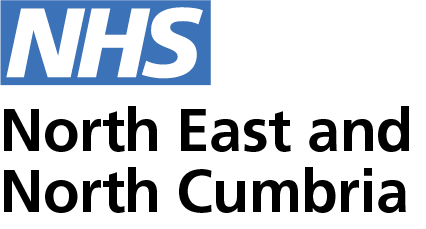"My journey with gender and being non-binary": Nic Marlor
Nic Marlor, Senior Commissioning Support Officer at NECS, shares their journey with gender and being non-binary.
"The first time I heard the term "non-binary" was probably in 2020. Like most people at the time, I didn't really understand what it meant and it didn't register as relevant to me for a while. Once I started hearing and understanding a bit more about what it means to be non-binary, things which I hadn't been able to articulate before started falling into place and making sense.
"Throughout my childhood, I was referred to as a 'tom-boy', preferring cycling, Lego and video games over Barbies, dolls and dress up. I distinctly remember at the age of six, wriggling around uncomfortably in a bathroom, trying desperately to get out of a puffy pink dress I was wearing to my mum's wedding, then feeling a huge sense of relief when I donned my trusted denim dungarees instead. For most of my life, I was in heterosexual relationships, and I believe my gender expression during this time was hugely influenced by the expectations of partners and wider society.
"Eventually I embarked upon a journey to becoming my true self, which resulted in a long term committed relationship with a woman. I would say from my own personal experience that I don't think it’s a given to suggest that anyone in a same sex relationship finds it easier to express an alternative gender identity. For me, it was a combination of feeling safe in my relationship and an increase in my self confidence which allowed me to understand and explore more about my gender in general. I never felt completely comfortable thinking of myself as a woman or a girl, but I also never felt that I wanted to be a boy or a man. There are elements of being female that I am hugely proud of, especially as it has allowed me to create, grow and bring two children into the world. A feeling of being somewhere in the middle, not quite fitting in one box or other, is what being non-binary is about for me.
"In 2021, I made the decision that I would define my gender as non-binary, rather than female. There wasn't a red-carpet roll out or fanfare, no big reveal or coming out. It was a slow journey that happened mostly internally in my mind, but it did start to show externally over time. For example, I finally got the short haircut I'd wanted for so long, a wardrobe clear-out saw dresses and skirts being sent off to the charity shop, I started ticking the non-binary or "other" box when being asked about my gender and I added my chosen pronouns (they/them) onto my email footer at work.
"I did find that making small changes didn't have the impact that I expected or wanted. I was still being referred to as she/her and not everyone understood how I felt. So two years ago on 14 July, 2021 (International Non-Binary People's Day) I uploaded a post on to social media for all of my friends and family to see, announcing that I was non-binary.
"I wish I could say this made a significant difference as two years later, despite personally feeling completely at one with my identity, I still feel like I am in the early days on a gender journey with those around me and I know a lot of other non-binary people feel this way – in 2023 Demi Lovato said in an interview with GQ Hype that she had changed her pronouns back to include she/ her as well as they/ them as she constantly had to educate people on why she identified with those pronouns and it became exhausting. However, also that it was important to keep spreading the word and I can relate to this – there is an education process involved for everyone.
"However, I also feel that people shouldn't be anxious about being unsure how to address or accidentally incorrectly addressing non-binary people like me. I often receive apologies when people accidentally refer to me as she, rather than they - this is an easy mistake to make. We have used she/ he language for a very long time in society and changing our points of reference takes time.
"But I also think that we shouldn't automatically assume and people should be treat as individuals. I have supportive colleagues, but there are a lot of little practical things I have seen in workplaces over the years that I would like to see change – for example, non-binary not being an option on paperwork and email addresses being set up in the passport ID name, which then is replicated across all other channels such as Teams. I have started to use my pronouns in meetings where I have been referred to as Nicola, rather than Nic, to help address this.
"Small gestures from others make me feel stronger too. My daughter made me some t-shirt artwork to support my non-binary journey which just makes me more motivated to help educate others.
"This is my journey so far to date with gender and being non-binary. I hope this has helped everyone to understand more about what the term non-binary means and more about the experience of people who identify as such."
For more information on being non-binary and how to be an ally to non-binary people, visit the Stonewall website.

